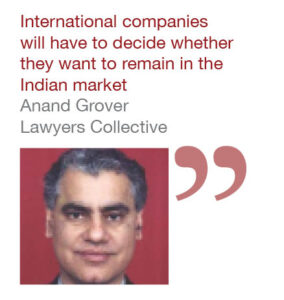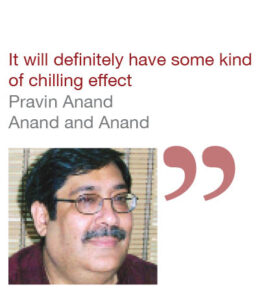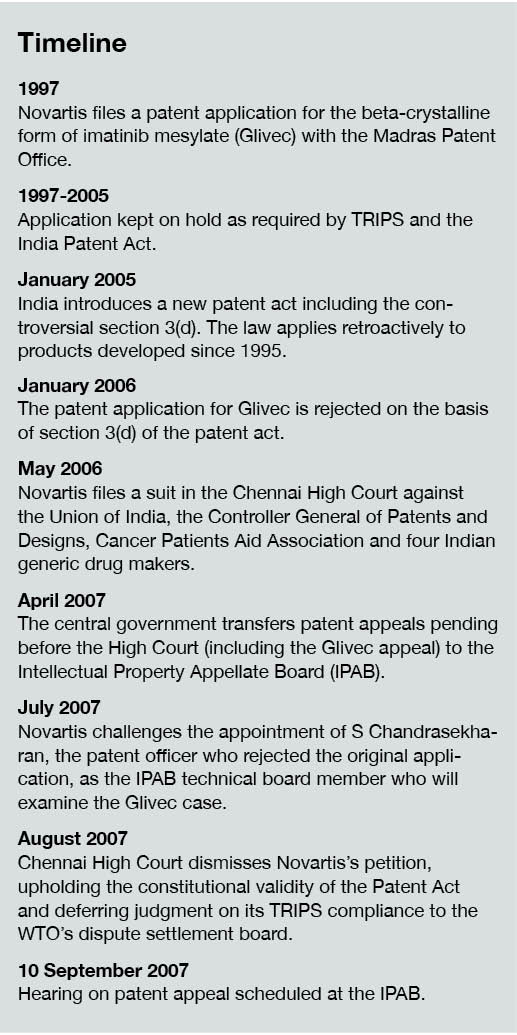NGOs and generic drug makers welcomed a high court ruling against Novartis. “Big Pharma” is not so pleased Alfred Romann reports
In an intellectual property case that made global headlines, Swiss pharmaceutical giant Novartis challenged the constitutional validity of India’s patent act as well as its compliance with the World Trade Organization (WTO) agreement on Trade-Related Aspects of Intellectual Property Rights (TRIPS).
The company had sought to overturn a controversial section of the act – section 3(d) – that bans patents for modifications to existing drugs, arguing that “incremental innovations” should also be patentable.
On 7 August, the Chennai High Court dismissed the challenge.
It upheld the law’s validity under the Indian constitution and said it did not have the authority to rule on whether it complied with WTO regulations.
IP law firm Remfry & Sagar represented Novartis. The firm has also acted for the pharmaceutical companies Pfizer, GlaxoSmithKline and Novartis in litigation against generic manufacturers.
The story leading up to the court case was reported in depth in the June 2007 issue of India Business Law Journal. It began when Novartis applied for a patent for its new leukemia drug, Glivec (imatinib mesylate).
Glivec was developed by adding a salt to a known compound, imatinib. The patent application was rejected in January 2006 because the compound was not new and did not demonstrate increased efficacy over its earlier form.
The rejection was based on section 3(d) of the patent act which prevents the patenting of “incremental innovations” or new forms of old substances. “It creates a higher standard for patents and new barriers for entry,” said prominent IP lawyer Pravin Anand, managing partner of Anand and Anand.
Novartis has consistently argued that “incremental innovations” are important to the development of new medical treatments and that denying patents for such innovations will stifle medical research.
The August court ruling upheld the constitutional validity of India’s patent act and deferred judgment on its TRIPS compliance to the WTO’s dispute settlement board. It did not relate directly to the rejection of the Glivec patent. This part of the case had already been referred to the Intellectual Property Appellate Board (IPAB) where it is pending.

“In the pharmaceutical field, it will definitely have some kind of chilling effect” said Pravin Anand, commenting on the high court judgment.
“We disagree with this ruling,” said Ranjit Shahani, vice-chairman and managing director of Novartis India, in a statement on the company’s website. “Local and international leaders in both industry and academia recognize the inadequacies of section 3(d) and are raising serious concerns about the deficiencies of the Indian patent system.”

But aid group Medecins Sans Frontieres hailed the decision as a “major victory”. It had organized a campaign to convince Novartis to drop its challenge to section 3(d), saying that allowing patents for incremental innovations could halt the production of cheap generic drugs that alleviate suffering in poor countries.
“I think that the judgment is correct,” said Anand Grover of Lawyers Collective, one of the lawyers who appeared against Novartis in the case.
The decision to uphold the validity of section 3(d) will “give more Indian generic companies the space to grow in the next 10 years, to enable them to compete in the US, EU and Japanese markets.”
Novartis has said it is unlikely to appeal. Speaking to The Financial Times, Chief Executive Daniel Vasella said the company was likely to respond by moving investment out of India and redirecting it elsewhere.
“International companies will have to decide whether they want to remain in the Indian market. If they stay out they will be the losers,” warned Grover.


























